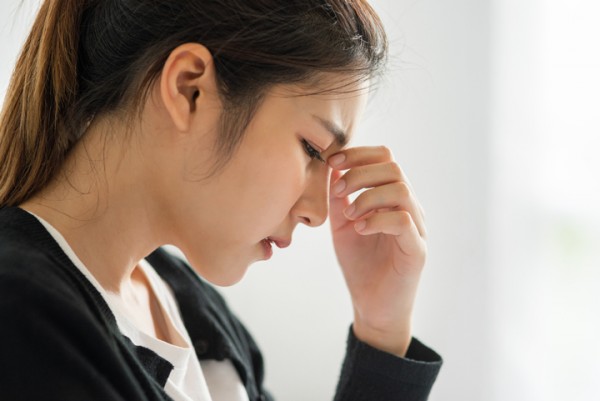How to Get Rid of Frequent Migraine Attacks
It's no longer surprising to hear that headaches are reportedly way up this year. Among those who suffer migraines, more than 60 percent said they're experiencing increased migraine episodes, with more than 22 percent of those saying the rise as substantial. The figures came out in survey results, which The Journal of Headache and Pain published in September.
There are many different possible reasons for the rise in number: Not only is migraine is a COVID-19 symptom itself, although according to reports, only four percent of the respondents had the infection, to their knowledge, the stress around everything that's related to a pandemic is definitely believed to be a trigger.
Adding to circumstance is the challenge of treating migraine episodes during a lockdown. Specifically, as specified in the study, about 61 percent of the participants surveyed did not contact their neurologists while in quarantine.
Meanwhile, 25.1 percent are found to have a more difficult time than usual receiving their medications. In contrast, of those who were given Botox injections for their treatment, 66.1 percent were found to have negative effects of needing to cancel their appointments.
This doesn't mean, though, that the months ahead need to be filled with episodes of headache. By avoiding triggers, managing anxiety, use of online tools, and smart tactics for improved work setups, you can experience more "migraine-free days."
ALSO READ: Do You Experience Frequent Migraines? 'Green Light' Therapy May Be for You

Among those who suffer migraines, more than 60 percent said they’re experiencing increased migraine episodes with more than 22 percent of those saying, the rise as substantial.
Turn Down the Light
Experts know which lights can trigger headaches for sufferers of migraine, and now, they say, blue light is one of the culprits.
According to the neurologist and Concussion Center at the Dent Neurologic Institute director, Dr. Jennifer McVige, light sensitivity has been a significant struggle on this COVID-19 generation, considering the prolonged screen time.
For most individuals, because of work-from-home protocols, explained Dr. McVige, "Our increased time indoors, and our sudden reliance on Zoom for social life," individuals are evidently online most of the time.
To help alleviate the eye strain, she recommended that backlight or brightness on mobile phones or computers should be turned down. In addition, turning down the light will also help with the glare and save on battery, too.
DON'T MISS THIS: US Buys Majority of Redemsivir Global Stock in Hopes of Ensuring COVID-19 Recoveries
Skip Fragrances
In connection to the condition, Dignity Health Northridge Hospital stroke medical director, Dr. Parham Yashar, MD, recommended skipping fragrances, specifically perfumes.
As he elaborated it, the doctor said, "Olfactory chemical irritants may trigger pathways that are involved in headaches."
Therefore, he added that it is essential to zero-in on unscented, specifically laundry detergents and cleaning products. Furthermore, Yashar suggested, too, considering adding an air filter inside your home to filter out any unwanted smell.
Stress-Free Days and Adequate Sleep
A Cephalalgia study specified that stress is the most typically-cited trigger for migraines. The said research showed 80 percent cited it as a great contributor to their headaches.
Dr. McVige said, prioritizing relaxing activities over the ones that cause stress may offer some relief. Mindfulness and meditation, or even going out for some fresh air, are effective ways to relieve headaches. Taking 10 minutes of exercise or stretch, or giving yourself a break helps, too.
As far as sleep is concerned, Dr. Yashar explained, preparing yourself for a proper rest can help you efficiently attend to your day-to-day activities.
The key shifts to make your bedroom worthy to rest and sleep may include trying to minimize the different triggers that patients with headaches of migraines may have, first and foremost.
Meaning, eliminating your mobile devices' light at night, filtering as much noise as possible, and trying everything you can to get eight hours of sleep is certainly effective.
IN CASE YOU MISSED IT: Remdesivir Priced from $2,340 to $3,120 per Patient, Way Cheaper Than Estimated, Gilead CEO Says
Check out more news and information on Headache on MD News Daily.
Nov 05, 2020 08:00 PM EST





